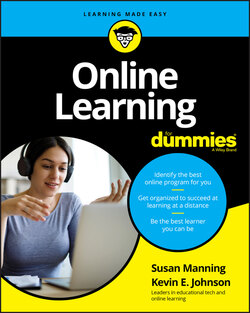Читать книгу Online Learning For Dummies - Susan Manning - Страница 35
Learners with disabilities
ОглавлениеOnline classes provide an exceptional alternative educational opportunity for persons with disabilities. Learners with physical disabilities can avoid the hassle of traveling to campus and navigating the physical classroom. For those with learning disabilities, technology can assist in activities such as prolonging test times and spell-checking documents. However, depending on a person’s specific impairment and the institution’s knowledge regarding the creation of accessible content, online learning may still present difficulties.
State and federal laws continue to be created that require public institutions to develop all materials in an accessible manner. However, not all those responsible for creating online courses are aware of these regulations or are trained on how to implement the guidelines. Therefore, websites, LMSs, and course content can sometimes lack design structures that meet accessibility standards. In Chapter 19, we provide a list of questions you can ask to help determine whether an institution is prepared to accommodate your learning needs.
The law provides learners who have disabilities the right to equal access to information in a comparable format to their peers who are without disabilities. However, with this right comes responsibility. To receive appropriate and reasonable accommodations, persons must voluntarily disclose and document their impairment before accommodations will be made. Accommodations, which are based on each individual’s needs, are usually determined with the help of the institutions’ disability services department staff. Find out more about this process in Chapter 19.
